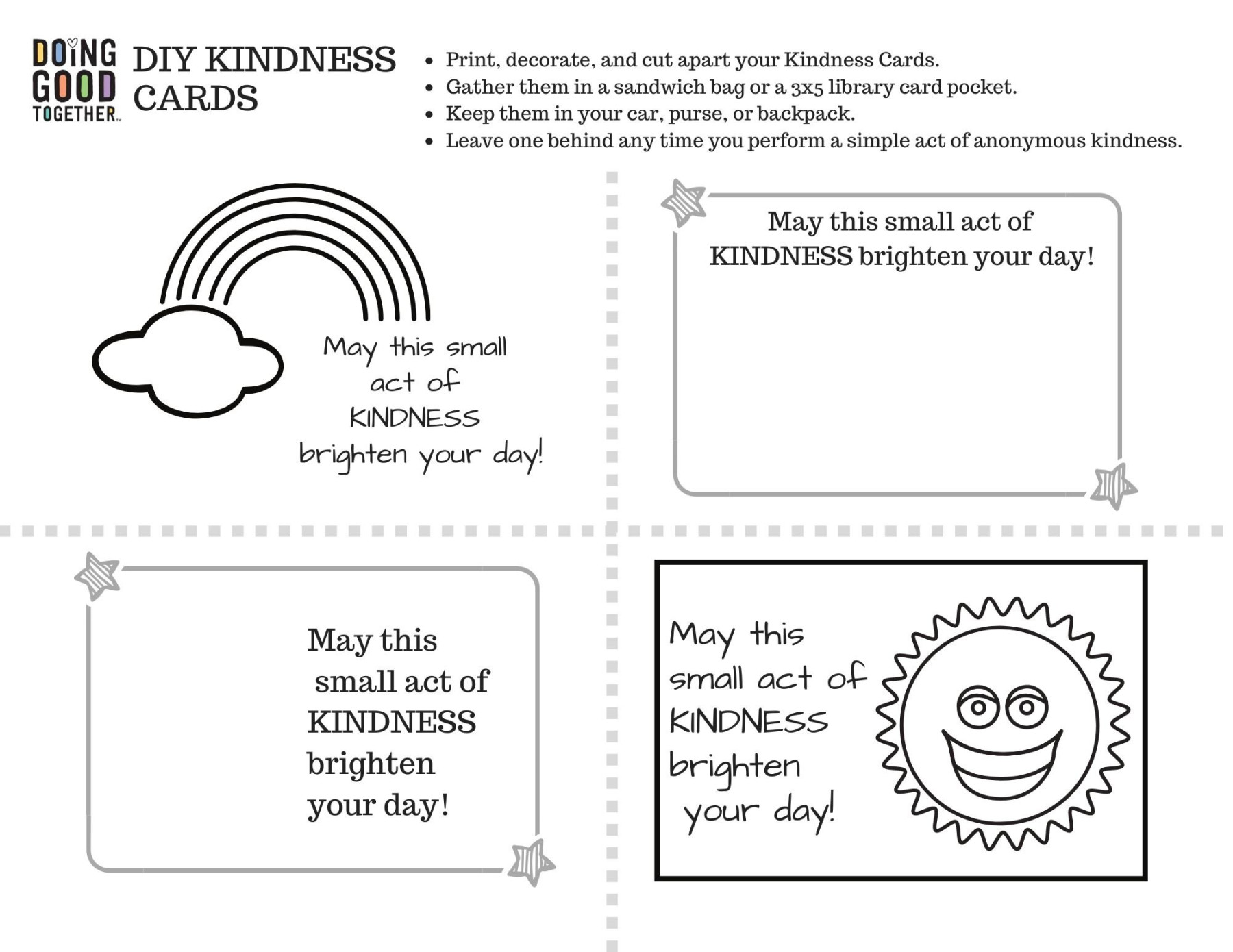Color Palette
A carefully chosen color palette can significantly enhance the professionalism and impact of your Random Acts of Kindness Cards Templates. Consider using colors that evoke feelings of warmth, kindness, and positivity. Soft pastels like light blue, lavender, and peach can create a soothing and inviting atmosphere. Alternatively, vibrant hues like orange and yellow can convey energy and enthusiasm. Remember to maintain a balanced color scheme that is visually appealing and easy on the eyes.

Typography
The typography you select for your cards should be clear, legible, and consistent with the overall tone and message. Opt for fonts that are easy to read, such as sans-serif typefaces like Arial, Helvetica, or Roboto. Avoid overly ornate or decorative fonts that can appear cluttered or unprofessional. The font size should be large enough to be easily read from a distance, but not so large that it dominates the card’s design.
Layout and Composition
The layout and composition of your cards are essential for creating a visually appealing and effective design. Consider the following elements:
White Space: Use white space judiciously to create a sense of balance and clarity. Avoid overcrowding the card with too much text or imagery.
Messaging and Text
The text on your cards should be concise, heartfelt, and inspiring. Avoid using overly complex language or jargon. Instead, focus on conveying a clear and meaningful message that resonates with your audience. Consider including a quote or inspirational saying that reinforces the theme of kindness.
Call to Action
A strong call to action can encourage recipients to take a specific action or spread the message of kindness. This could be as simple as asking them to pay it forward by performing their own random act of kindness. Alternatively, you could direct them to a website or social media page where they can learn more about your organization or initiative.
Customization Options
To make your cards more personalized and engaging, consider offering customization options. This could include allowing recipients to add their own message or choose from a variety of different card designs. Customization can help to create a more meaningful and memorable experience for the recipient.
Accessibility
When designing your cards, it is important to consider accessibility. Ensure that the text is large enough to be read by people with visual impairments. Avoid using excessive amounts of contrast or bright colors that can be difficult to see for people with sensitivity to light. Additionally, consider providing an audio version of your cards for people with visual disabilities.
Proofreading and Editing
Before finalizing your card designs, be sure to proofread and edit carefully to ensure that there are no errors in grammar, spelling, or punctuation. A typo or grammatical error can detract from the professionalism of your cards and undermine the message you are trying to convey.